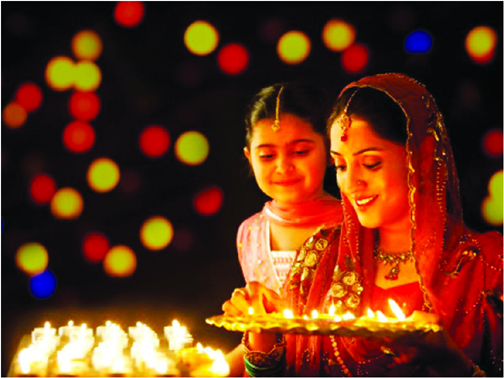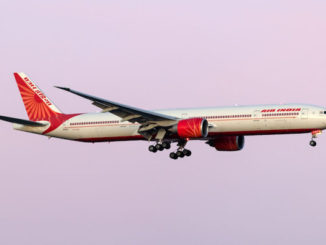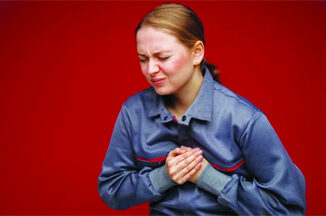
Every year, Hindus celebrate Diwali to mark the victory of good over evil, light over darkness, and happiness over despair. The festival of lights, also known as Deepavali, is observed with much pomp across the country. People decorate their homes with diyas, rangoli, ornaments and lights, eat delicious sweets and dishes, wear new traditional clothes, observe rituals, perform puja, and more. According to Hindu mythology, Diwali marks the return of Lord Ram to Ayodhya after defeating Ravana and completing 14 years in exile. People commemorate the festival of lights by praying to Goddess Lakshmi, Lord Ganesh and Lord Kubera to bless them with health, wealth and prosperity. Diwali celebrations are spread out over five days, beginning with Dhanteras or Dhan Trayodashi and ending with Bhai Dooj.
Here’s a list of the five days of Diwali.
October 22: Dhanteras or Dhan Trayodashi
The Dhanteras puja muhurat will be observed from 07:00 pm to 08:17 pm on October 22. People worship Lord Kubera and Goddess Lakshmi and buy something new on this day. Considered very auspicious, people purchase gold, silver, clothes, gadgets as a sign of good fortune. This day is purely dedicated to the goddess of wealth
October 23: Narak Chaturdashi, also known as Choti Diwali
Naraka Chaturdasi, the second day, also known as Choti Diwali, will begin at 05:05 am and end at 06:27 am on 23 October. According to Hindu tradition and mythology, it is believed that Lord Krishna fought the demon Narakasura and killed him.
October 24: Diwali
The Lakshmi puja muhurat will begin at 06:53 pm and end at 08:15 pm on October 24. The main festive day is Diwali, when people perform Lakshmi Pujan. The main celebration of Diwali takes place on this day and Lord Rama returned to Ayodhya after killing Ravana. People welcome Goddess Lakshmi, the goddess of wealth, who is believed to bless people with luck and prosperity.
October 25: Govardhan Puja
The Govardhan Puja muhurat is from 06:28 am till 08:43 am. Govardhan Puja is celebrated a day after Diwali and people worship Lord Krishna on this day. People believe that Lord Krishna saved the residents of Mathura from Lord Indra by lifting a mountain named ‘Govardhan’.
October 26: Bhai Dooj
The last and final day is called the Bhai Dooj or Bhau Beej, which celebrates the special bond of brothers and sisters. Bhaiya Dooj falls on October 26. On this day, the Aparahna time will last from 01:12 pm to 03:26 pm. It is celebrated on the second day of the Shukla Paksha of the lunar calendar and is similar to Rakshabandhan.
Mythical origins of Diwali
Deepavali or Diwali means “a row of lights”. It falls on the last two days of the dark half of the Hindu month of Kartik. There are various alleged origins attributed to this festival. Some hold that they celebrate the marriage of Lakshmi with Lord Vishnu. In Bengal the festival is dedicated to the worship of Kali. It also commemorates that blessed day on which the triumphant Lord Rama returned to Ayodhya after defeating Ravana. On this day also Sri Krishna killed the demon Narakasura. In South India people take an oil bath in the morning and wear new clothes. They partake of sweetmeats. They light fireworks, which are regarded as the effigies of Narakasura who was killed on this day. They greet one another, asking, “Have you had your Ganges bath?” which actually refers to the oil bath that morning as it is regarded as purifying as a bath in the holy Ganga.
Give and Forgive
Everyone forgets and forgives the wrongs done by others. There is an air of freedom, festivity and friendliness everywhere. This festival brings about unity. It instills charity in the hearts of people. Everyone buys new clothes for the family. Employers, too, purchase new clothes for their employees.
Rise and Shine
Waking up during the ‘Brahmamuhurta’ (at 4a.m.) is a great blessing from the standpoint of health, ethical discipline, efficiency in work and spiritual advancement. It is on Deepavali that everyone wakes up early in the morning. The sages who instituted this custom must have cherished the hope that their descendents would realise its benefits and make it a regular habit in their lives.
Unite and Unify
In a happy mood of great rejoicing village folk move about freely, mixing with one another without any reserve, all enmity being forgotten. People embrace one another with love. Deepavali is a great unifying force. Those with keen inner spiritual ears will clearly hear the voice of the sages, “O Children of God unite, and love all”. The vibrations produced by the greetings of love, which fill the atmosphere, are powerful enough to bring about a change of heart in every man and woman in the world. Alas! That heart has considerably hardened, and only a continuous celebration of Deepavali in our homes can rekindle in us the urgent need of turning away from the ruinous path of hatred.
Prosper and Progress
On this day, Hindu merchants in North India open their new account books and pray for success and prosperity during the coming year. The homes are cleaned and decorated by day and illuminated by night with earthen oil-lamps. The best and finest illuminations are to be seen in Bombay and Amritsar. The famous Golden Temple at Amritsar is lit in the evening with thousands of lamps placed all over the steps of the big tank. Vaishnavites celebrate the Govardhan Puja and feed the poor on a large scale.
Illuminate Your Inner Self
The light of lights, the selfluminous inner light of the Self is ever shining steadily in the chamber of your heart. Sit quietly. Close your eyes. Withdraw the senses. Fix the mind on this supreme light and enjoy the real Deepavali, by attaining illumination of the soul. He who Himself sees all but whom no one beholds, who illumines the intellect, the sun, the moon and the stars and the whole universe but whom they cannot illumine, He indeed is Brahman, He is the inner Self. Celebrate the real Deepavali by living in Brahman, and enjoy the eternal bliss of the soul. The sun does not shine there, nor do the moon and the stars, nor do lightnings shine and much less fire. All the lights of the world cannot be compared even to a ray of the inner light of the Self. Merge yourself in this light of lights and enjoy the supreme Deepavali.





Be the first to comment